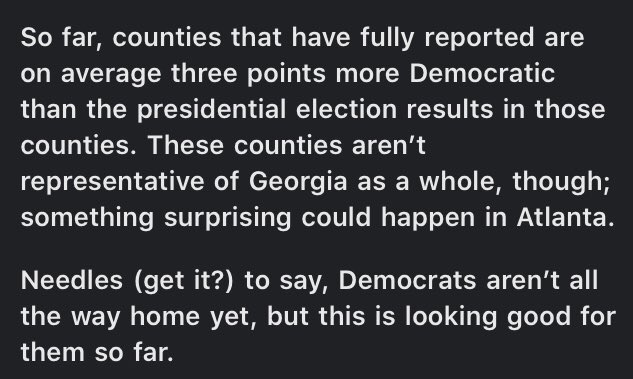
“So far, [Georgia] counties that have fully reported are on average three points more Democratic than the presidential election results in those counties.“ - @gelliottmorris newsletter 

• • •
Missing some Tweet in this thread? You can try to
force a refresh









